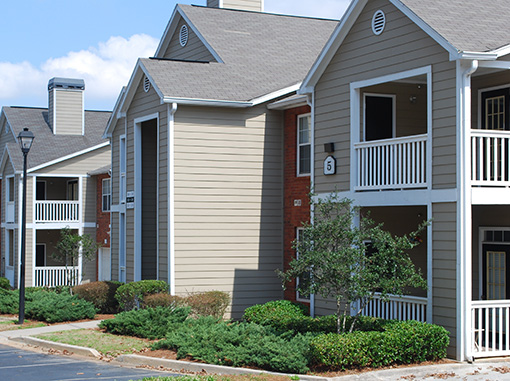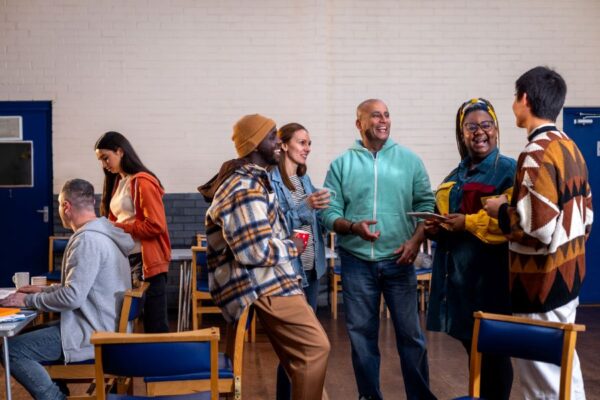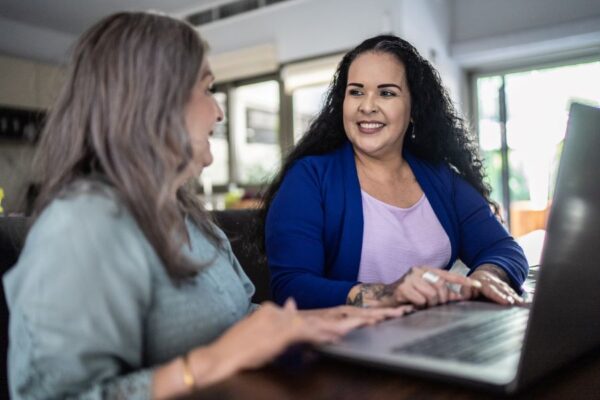Streets to Home
Reducing homelessness in King County by quickly connecting people with housing and income.
Support this program
Ensuring people have both stable housing and income is necessary in the fight against homelessness.
We know that the sooner people move off the streets, the less likely they are to fall back into homelessness. And, once off the streets, a stable income is just as necessary to maintain stable housing.
Streets to Home is a program that works with people experiencing homelessness to set them on a path of upward mobility by quickly getting them into housing and connecting them with employment so they can afford to stay there.
A key component of this work is recognizing and addressing racial inequities. People of color—especially Black, Indigenous and Latino people—are disproportionately experiencing homelessness at higher rates than white people in King County. Even before the pandemic, in Seattle, more than half the tenants in eviction filings are people of color. Black tenants are 4.5 times more likely to be evicted based on their share of the population. This is because of historical and current structural racism that creates barriers to generational wealth building, employment, housing and more.
Even without a 2021 Point-in-Time Count (canceled due to the pandemic), we know that homelessness is more visible than ever in our community. Since the pandemic, our investments have focused on prevention, particularly within communities of color.
Keeping people housed throughout this crisis positions our region to come out the other side much stronger.
Homelessness Disproportionality in King County
We are focusing our efforts to combat these inequities by partnering with 12 agencies. These provider partners have a track record of working with Black, Indigenous and people of color (BIPOC) individuals and families and refugee communities experiencing homelessness and joblessness and connecting them to housing and jobs.
Thanks to our Street to Home partners, Cares of Washington, FareStart, Interaction Transition, Mary’s Place, Trac Associates and Muslim Housing Services (in partnership), Refugee Women’s Alliance (ReWA), Urban League, Vine Maple Place, YouthCare, YWCA, Chief Seattle Club and REACH: Evergreen Treatment Services, roughly 70% of those helped were people of color.
How It Works
Everyone’s circumstances are different. That’s why flexibility is a big piece of the support that Streets to Home provides. Outreach workers from homeless and mental health organizations connect and partner with people experiencing homelessness to understand their unique needs. Flexible dollars are available to break down barriers toward stable housing and income.

An outreach worker connects with a person or family experiencing homelessness.

They then work collaboratively to identify and address barriers to housing, using flexible dollars to break down those barriers.

The team also explores factors impacting income, identifying pathways to stabilize or increase income through employment.

Participants are connected to employers who are seeking to hire people into long-term jobs.
Success to Date
Since the start of the pandemic we have helped over 17,000 households stay in their homes and distributed over $80 million. With the pandemic, the flexibility of funds available through Streets to Home has become even more critical. In addition to housing and job support, through this program, we were also able to offer additional assistance for things like healthy food, reliable transportation and other basic needs.
Since July 1, 2021:
- 450 people connected to housing & employment.
- 95% of people are still housed after 6 months.
- Roughly 76% of people accessing the program were people of color.

Gabriel’s Story
Gabriel is a proud father of a six-year-old daughter. They had been living in their car when he made a connection with a Streets to Home outreach worker. A previous eviction was preventing him from securing housing, but with help, he was able to navigate the system and secure permanent housing subsidized by the City of Seattle. The subsidy was essential for Gabriel because of fluctuations in income during COVID-19. Flexible dollars also helped him cover late car payments, enabling him to continue working and providing for his daughter. They were also able to get $40 a month in food vouchers—a highlight for the young family as they love shopping for fresh fruits and veggies together.
Our Goal
Reduce the number of unsheltered people by 50%
By quickly connecting people with housing and income, we can reduce homelessness in King County.
Latest Updates on Fighting Homelessness
Streets to Home Honor Roll
With support from these generous donors, we are helping people off the streets and into a stable home.
$100K+
- US Bank
20K
- Loeb Family Charitable Foundation



